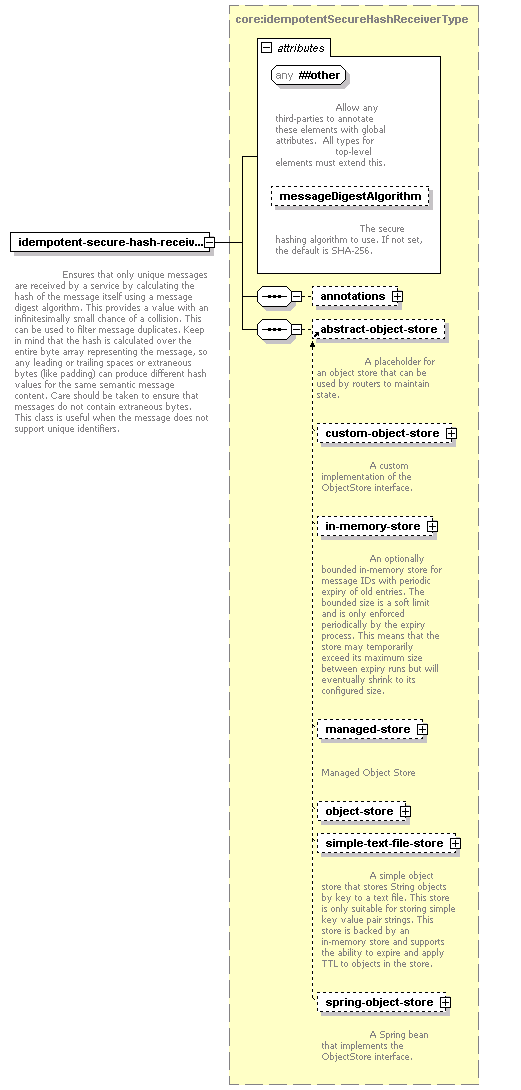
Namespace: |
|
Type: |
|
Content: |
complex, 1 attribute, attr. wildcard, 2 elements |
Subst.Gr: |
may substitute for element abstract-inbound-router |
Defined: |
globally in mule.xsd; see XML source |
Used: |
never |

XML Representation Summary |
||||||
| <idempotent-secure-hash-receiver-router | ||||||
|
||||||
| {any attribute with non-schema namespace} | ||||||
| > | ||||||
|
||||||
| </idempotent-secure-hash-receiver-router> | ||||||
| <xsd:element name="idempotent-secure-hash-receiver-router" substitutionGroup="abstract-inbound-router" type="idempotentSecureHashReceiverType"/> |
| XML schema documentation generated with DocFlex/XML RE 1.8.5 using DocFlex/XML XSDDoc 2.5.0 template set. All content model diagrams generated by Altova XMLSpy via DocFlex/XML XMLSpy Integration. |